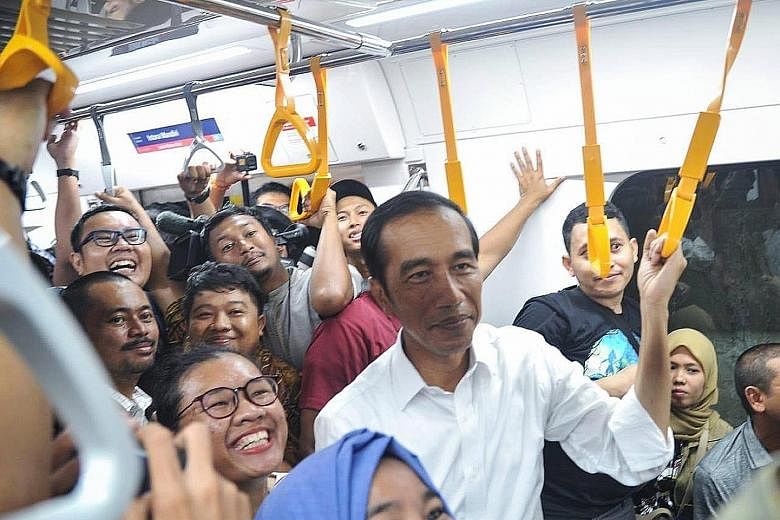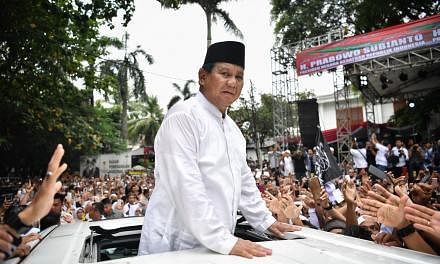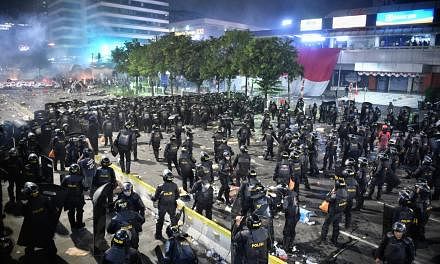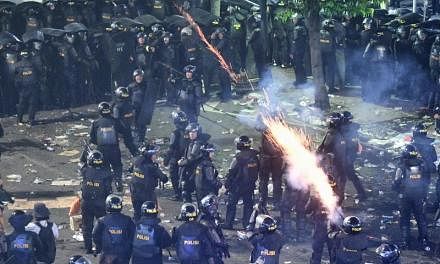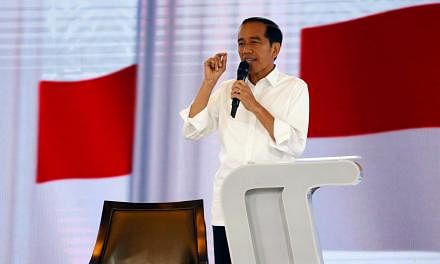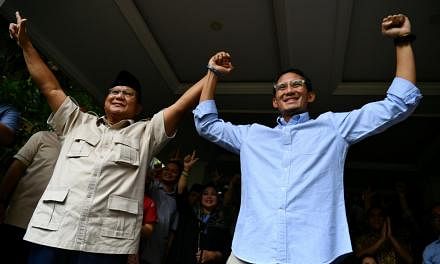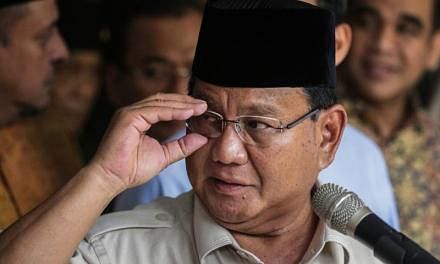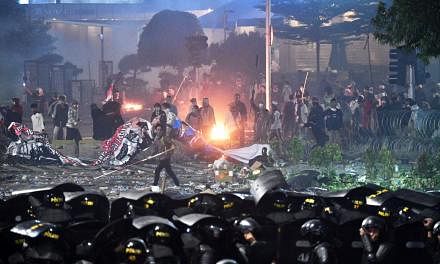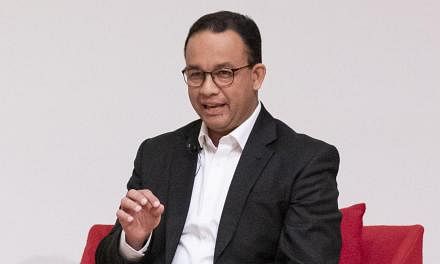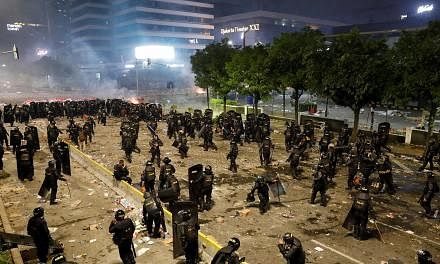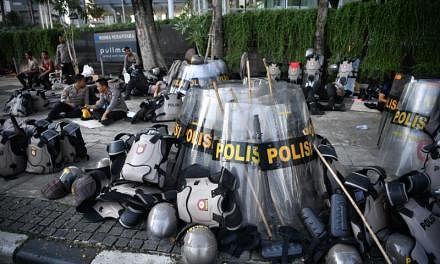JAKARTA • Eight reputable pollsters grouped under the Indonesian Association for Public Opinion Surveys (Persepi) have defended their "quick-count" methodology amid allegations that they were biased towards President Joko Widodo.
In a first, the pollsters - which have accurately predicted all election results in the past - held a joint event in Jakarta on Saturday last week, where they invited the media and the public to examine their methodology as well as raw data from polling stations they surveyed on election day.
The press briefing came only a day after presidential candidate Prabowo Subianto lashed out at the pollsters, calling them liars and asking them "to move to the Antarctic to spread lies to the penguins".
The pollsters' quick-count results showed that the Jokowi-Ma'ruf Amin pair was likely to win the presidential race with 54 to 55 per cent of the vote against the Prabowo-Sandiaga Uno duo's 45 to 46 per cent.
Mr Prabowo has strongly rejected the results, saying that based on the vote count conducted by his own team, he had won by 62 per cent. He claimed to have conducted a real count of data from more than 320,000 polling stations.
Persepi head Philips J. Vermonte, who is also executive director at the Centre for Strategic and International Studies, said the press briefing was held in response to attempts by certain groups to delegitimise the scientific method used in counting votes.
"We invite the public to a scientific debate that is evidence-based. Through the data expose, you can see how we did the quick counts," he told reporters. "We'll arrange it like a bazaar for you to see our data closely. There are photos of C1 forms (vote-tally forms). We went through the process transparently."
The pollsters, he said, would also upload their data onto their respective websites so that the public could access and examine them. "It will be on each pollster's website. Some have started uploading them."
Quick counts were first held in the 2004 general election, when Indonesians directly elected their president for the first time.
Unlike exit polls, in which pollsters ask people who they voted for, a quick count is conducted by randomly sampling data on C1 forms from polling stations across the country. The polling stations were selected proportionally in each of the country's 34 provinces.
Pollsters survey between 1,500 and 5,000 polling stations. The bigger the sample, the smaller the survey's margin of error.
Professor Asep Saefudin, a statistics expert from Bogor Agricultural University, explained that a quick count was the simplest method in statistics. "It is like taking probability from a basin, but it needs randomisation," he said.
Mr Vermonte said the pollsters were ready to be scrutinised. "We invite the people who called us untrustworthy pollsters to our offices. There is nothing to hide. We also want those who claim to have different results to release their data to the public," he said.
The Prabowo-Sandiaga legal team reported some survey institutions to the General Elections Commission (KPU) last Thursday, accusing them of spreading fake news and hoaxes; namely LSI Denny JA, Indo Barometer, Charta Politika, Saiful Mujani Research & Consulting, Poltracking and Voxpol.
"We assume these institutions received orders to carry out a quick count like this," said team coordinator Djamaluddin Koedoeboen that same day, as quoted by news website Kompas.com.
The Prabowo camp has largely referred to an incomplete census of the election results of all the polling stations for their claimed victory. The supporters, for example, have referred to the vote count conducted by application AyoJagaTPS.com, which indicates that Mr Prabowo led Mr Joko by a margin of more than 25 per cent.
Prabowo campaign spokesman Andre Rosiade declined to respond to the pollsters' challenge, saying they used different data. He claimed to have counted results from more than 500,000 polling stations. "It's not apple to apple," he said. "If they want to challenge us, they need to go to the Constitutional Court because our data should be the same as the KPU."
THE JAKARTA POST/ASIA NEWS NETWORK
